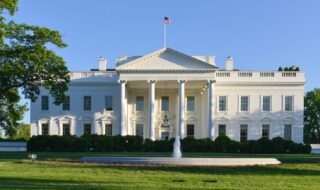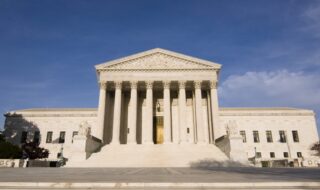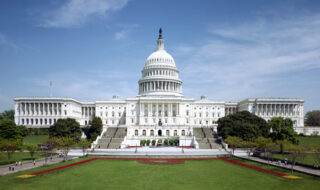March 22, 2021
NFIB Fights for Small Business Privacy Rights
In the U.S. Supreme Court and courts across the country, the NFIB Small Business Legal Center acts as the voice of small businesses in America’s courtrooms. In March, some of its highest-profile cases relate to a small businesses’ right to privacy. Here are two briefs recently filed by NFIB to defend small businesses against invasive information collection and publication attempts:
Washington Post et al. v. U.S. Small Business Administration. On March 22nd, NFIB filed an amicus brief before the U.S. District Court in D.C. in support of the U.S. Small Business Administration (SBA) withholding records of information pertaining to borrowers of Paycheck Protection Program (PPP) loans. The Washington Post and other media organizations sought these records, which included loan statuses, social security numbers, and other personal information, under a Freedom of Information Act (FOIA) request.
Karen Harned, Executive Director of NFIB’s Small Business Legal Center, argued that small business owners did not apply for PPP loans thinking that their personal information would be made publicly available.
“Many small businesses have benefited from the Paycheck Protection Program during the COVID-19 pandemic,” said Harned. “The program was designed to help business owners pay their employees and meet financial obligations during an economic crisis that was of no fault of their own. Disclosing borrower information is not what small employers signed up for and is a violation of their privacy.”
Americans for Prosperity Foundation v. Becerra. On March 1st, NFIB filed a brief before the U.S. Supreme Court supporting Americans for Prosperity Foundation (AFP) in a case concerning whether California can demand nonprofit organizations disclose the names and addresses of donors who give $5,000 or more in a year.
The Ninth Circuit court previously ruled that California’s requirement did not infringe upon the donors’ First Amendment right to associate freely. NFIB’s brief urges the U.S. Supreme Court to reverse this erroneous decision.
“Small business owners, like many Americans, make decisions to support nonprofits that align with their morals and beliefs,” said Karen Harned. “If states can legally demand blanket donor information without any relevant law-enforcement-related necessity for the information, harmful consequences are sure to follow. As our brief demonstrates, time and time again private information disclosed to government authorities ends up in the wrong hands, which can lead to harassment and economic or physical retribution by those with opposing views – including ‘doxing’ and ‘canceling.’”
“This case will set a dangerous precedent if the lower court’s decision is upheld and will inevitably threaten core speech and association protected by the First Amendment.”
The NFIB Small Business Legal Center is the voice for small business in the nation’s courts and the legal resource for small business owners nationwide. Learn more here.
NFIB is a member-driven organization advocating on behalf of small and independent businesses nationwide.
Related Articles














